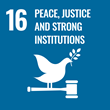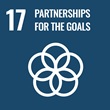Project information
Robust Crisis Governance in Turbulent Times – Mindset, Evidence, Strategies
(ROBUST)
- Project Identification
- 1136/2021
- Project Period
- 10/2022 - 3/2026
- Investor / Pogramme / Project type
-
European Union
- Horizon Europe
- Cluster 2 - Culture, Creativity and Inclusive Society
- MU Faculty or unit
- Faculty of Economics and Administration
- Project Website
- https://robust-crisis-governance.eu/
- Cooperating Organization
-
Jan Evangelista Purkyněn Military Academy of Medicine, Hradec Králové
- Responsible person prof. Jacob Torfing
Tallinn University
Corvinus University of Budapest
Universiteit Utrecht
Universidad de Zaragoza
The University of Turin
The Arctic University of Norway
The focus of European post-pandemic politics is currently on ‘bouncing back’ from the crisis by building system capacities for enhanced resilience. These efforts draw on resilience research, which has become the dominant paradigm in crisis management. However, there are much broader governance challenges, which this approach fails to take into account. Hence, the real question is how European societies can deliver effective crisis responses in the future through flexible adaptation and proactive innovation while ensuring that core goals and values about democracy, the rule of law, and fundamental rights are upheld in the face of crisis-induced turbulence. The ROBUST project aims to set in motion a paradigm shift from ‘resilience’ (‘bouncing back’) to ‘robustness’ (‘building back better’) as the central principle of future crisis governance. This implies understanding how democratic institutions can deliver effective crisis governance responses while at the same time adapting and innovating the way in which they deliver on core values. The project breaks new ground by conceptualizing and operationalizing robust crisis responses, investigating empirically how EU and national strategies for multilevel governance, hybridity in governance, democracy, and law, and societal intelligence contribute to robustness, and how system-level responses interact with crisis governance ‘on the streets’ of localities throughout Europe. Delivering the elements of a new crisis governance mindset along with policy recommendations rooted in comparative and historical analysis of eight EU countries and 16 local cases, the project identifies the configurations of factors which lead to (or hinder) robust crisis governance and thereby enable European democratic institutions to maintain and increase their ability to deliver on their fundamental values. Alongside its analytical contributions, the project furthermore establishes a learning hub, which will serve as the social engine of the paradigm shift envisioned by the project - also beyond the end of the project.
Sustainable Development Goals
Masaryk University is committed to the UN Sustainable Development Goals, which aim to improve the conditions and quality of life on our planet by 2030.
Publications
Total number of publications: 2
2025
-
Rebuilding Countries in a War and Post‐War Context: Reconstruction Models and Their Impacts
Politics and Governance, year: 2025, volume: 13, edition: Article 9879, DOI
2024
-
Jak podpořit robustnost vládnutí a krizového řízení pro lepší zvládání budoucích krizí
Year: 2024, type: Popularization text

